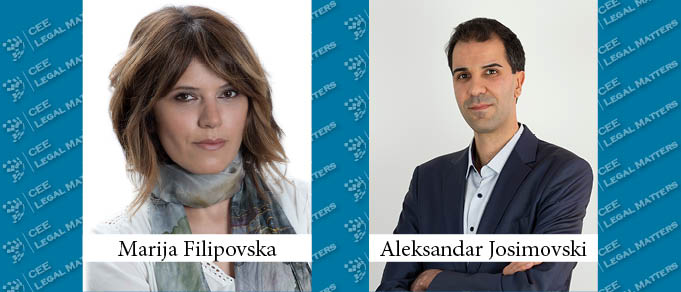The development of road infrastructure is important for the Macedonian authorities. The Government of the Republic of North Macedonia (RoNM) analyzed and undertook different approaches for the realization of infrastructure projects in the past. During the last few years, the Assembly of the RoNM (Assembly) has adopted two laws that stipulated additional regimes for the realization of infrastructure projects.
The Law on Strategic Investments (LSI) entered into force on January 20, 2020, and it stipulates criteria, conditions, and procedure application for obtaining the status, selection, preparation, and the realization of strategic investment projects (SIP).
The LSI prescribes that a project would be considered a SIP if it fulfills one or more of the goals defined in the LSI and would be realized with an investment amounting to: at least EUR 100 million if the investment would be made by two or more municipalities; at least EUR 50 million if the investment is made in municipalities with a seat registered in any city and the City of Skopje; and at least EUR 30 million if the investment is made in a municipality organized in a village.
Additionally, projects would also be considered as SIP if realized based on agreements between countries, realized and financed in cooperation with the EU, the Ministerial Council of the Energy Community, and international financial institutions, if those projects are led by a state body, public enterprise, trade company, or other entity incorporated or fully owned by RoNM or its municipalities. In such cases, the amount of the investment is not a criterion.
The LSI explicitly stipulates that the realization of strategic projects is a public interest. SIPs may be private, public-private, or completely public projects. We understand that infrastructure projects in which RoNM or an entity established by RoNM is usually a project leader may be realized as a public-private SIP, in accordance with the legislation for public-private partnerships, or as a public SIP, when led by any of the state bodies and institutions in the above paragraph.
Furthermore, the LSI stipulates that a special regime for obtaining the necessary documents would be applicable for the realization of each SIP, which may put projects on a fast track. Namely, the necessary approvals, permits, consents, licenses, authorizations, certificates, and other documents which need to be issued in accordance with applicable laws would be issued within deadlines provided in the law for the realization of SIPs.
The status of SIP would be granted through a government decision. The government should also provide consent for the SIP’s draft agreement (which would be prepared by a special Commission for SIPs) and prepare the draft law for that particular SIP’s realization. The LSI stipulates detailed rules and deadlines for the issuance of a decision granting SIP status, however, the deadlines for concluding the SIP’s agreement and the adoption of the law for its realization are not prescribed. Hence, the period needed for completing the necessary statutory steps and obtaining effective SIP status cannot be determined.
Additionally, the Assembly adopted a special law for the realization of an infrastructure project in 2021 (Infrastructure Project Law), with which the public interest was determined and a contractor, i.e., strategic partner was nominated for the construction of certain routes along Corridors 8 and 10D. Based on the Infrastructure Project Law, the realization of this project would be supported by a special regime for: the working hours of employees, employment of foreigners, obtaining licenses for exploration and exploitation of minerals necessary for the construction of state roads, exemption from VAT legislation, and exemption from legislation for public procurement. For the needs of managing the projecting, construction works, and preparation of necessary project documentation, separate construction agreements would be concluded between the strategic partner, the Public Enterprise of State Roads (as an investor), and the Ministry of Transport and Communications, after successful negotiations.
Clearly, the above laws are a result of the Macedonian Government’s dedication to increasing capital investments in infrastructure projects. Nonetheless, noting that there is no infrastructure project yet realized under these laws, the effects of this new legislation should be assessed over the following years.
By Marija Filipovska, Partner, and Aleksandar Josimovski, Attorney-at-Law, CMS Skopje
This Article was originally published in Issue 9.4 of the CEE Legal Matters Magazine. If you would like to receive a hard copy of the magazine, you can subscribe here.


